Author’s Note: The following post will discuss depictions of sexuality in media. As such, content may not be acceptable for young children. Please read responsibly.
In light of Zach’s recent post, I’ve decided to finally talk about an issue that is of serious concern to me, and one about which I have rather conflicted feelings: the homosexual relationship as depicted in manga. The concept of graphic depictions of homosexuality in media is something that is fairly new to the Western market, and something that is being met with varying levels of approval all over the U.S. But homosexuality in history and fiction is nothing new in Japan – though the acceptance of homosexual relationships might not always be 100% fair or equally-minded.
Fans of anime will already be familiar with the terms shonen-ai (boy love), shojo ai (girl love), yaoi (male homosexual relationships), and yuri (female homosexual relationships). In fact, many people seek out these specific genres and/or write fanfiction for their favorite series within these genres, often pairing characters that are not paired in the original work. On the surface, this can seem like acceptance for homosexuality, or indeed, a place where individuals who identify as homosexual can find stories about them, as opposed to having to wade through the centuries of heterosexual romance stories. In many ways, I think this can be seen as a positive trend in Eastern comics, especially as opposed to Western comics (as Zach’s post suggested). But there are also some pretty horrible stereotypes perpetuated in these stories, and it’s important to understand which ones are written from a truly honest place, and which ones are pure sexploitation (it’s a word).
It is not uncommon in the West for men to be interested in seeing two (or more) women engage in sexual acts. This mentality is not at all foreign to a Japanese audience; the only difference here is that there’s also work being created for women who enjoy watching two (or more) men engaging in sexual acts. As yaoi became widely prevalent on the internet, lots of 14-year-old MySpace girls got it into their heads that this was something they also found really sexy (trust me, I was there). This, in a very small way, is a victory in terms of gearing sexual media toward women – but in a much larger sense it is a hugely problematic exploitation of homosexuality. In both cases, these homosexual acts are seen as being provocative and entertaining for a heterosexual audience. They are not being taken as sexual acts between partners who actively live this way, who express their passion in this way.
The other downside to this genre is that the stories are almost always exclusively about sex – about wanting it, feeling guilty about it, obtaining it, obsessing about it. These aren’t characters who have normal lives who also happen to be sleeping with someone of the same sex. These are sex machines, created solely to be beautifully entangled in sexual frustration and relief. Their lives are defined by their sexual habits. They are drawn in such a way as to heighten their sexual attractiveness, posing to highlight their assets (not unlike how 99.9% of women in Western comic books are depicted).
But one of the most heinous offenses, as far as I’m concerned, is that nearly every single story has a very obvious gendered role; that is, one person is the “man” in the relationship, while the other is the “woman.” In the genre of yaoi specifically, there are terms for this: seme (meaning “attacker”), and uke (meaning “receiver”). I hate this stereotype with a profound and burning hatred. The concept that someone is attracted to members of the same sex because they are “too feminine” or “too masculine” to be attracted to the opposite sex is harmful to both homosexual and heterosexual individuals. It waters down sexuality to being based solely around socio-typical gender roles that must be fulfilled in order to have a successful, real relationship. Once again, this idea is not restricted to one society or the other; in the U.S. we suffer from this delusion as much as they do overseas.
With this sort of media being easily accessible, fans often take series into their own hands with fanfiction and fanart depictions of favorite characters. Once again, there’s no specific harm in this at the outset – that’s what fandom is all about! But it becomes a real problem when fans actively put down other characters who “get in the way” of their favorite pairing. For example, the series Gundam Wing has five male protagonists. Naturally, this leads to lots of different kinds of pairings – there are plenty of options. In this series, however, there is a very clear female love interest named Relena. Because fans want to use her boyfriend, Heero, in fan works with the other male characters, she is almost exclusively shunned by all. She is called stupid, ugly, annoying, an upstart, too perfect…all descriptions that are more or less incorrect, considering she’s a very dynamic character who goes from being rather naive and, yes, annoying, to literally becoming Queen of the World and having to make really important decisions. Demeaning of pivotal characters aside, there is also the practice of gender-swapping just one character in a pair in order to make their story homosexual. Once again, this more often than not happens to female characters, most of whom already have the short end of the proverbial media-image stick. So fans exploit a homosexual relationship while, at the same time, diminishing a valid relationship that already exists. For no reason other than “it’s sexy.” Once again, fans can do whatever they want, but I think there’s a certain point where it’s important to recognize that the way they treat characters might say a thing or two about the way they view people in general.
I don’t imagine that the industry is going to change overnight. In fact, I wouldn’t see these trends as even being that harmful – if they were in the minority and taken with a grain of salt. But people are very serious about these types of stories, to the point where it’s very difficult to find a genuine love story that is about two people of the same sex. I am 100% all-for homosexuality (and, yes, homosexual sex!) in manga and anime – but not at the sacrifice of the story, and certainly not with the kind of disrespect it currently perpetuates for an entire population. Is it wrong to enjoy these stories? I don’t think so, no. But the error comes when you believe that this is what it is to be homosexual, to be in a homosexual relationship.
In closing, I want to clarify that I have never personally been the brunt of any of these stereotypes, being more or less heterosexual. I am very open to discussion on this topic from all sides of the issue, because I genuinely want to know what people think, and how we can improve media and fandom so that all people are given the kind of respect we all deserve as human beings. Additionally, I only talked about homosexuality in this post, but I recognize that there might be more specific concerns for individuals who identify differently on the queer spectrum – bisexual, transgender, etc. I haven’t encountered much media that deals with these specific groups of people, but if any exist, I would be very willing to check them out!

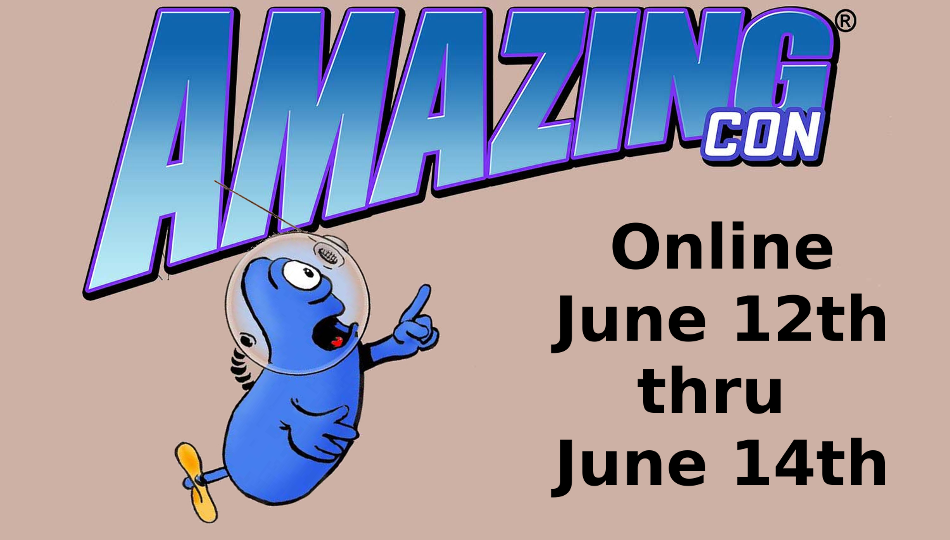
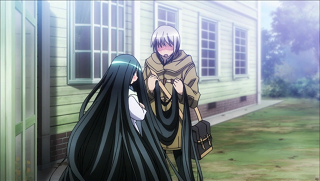


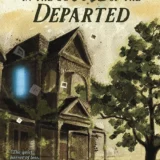

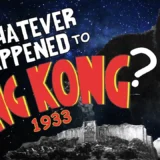
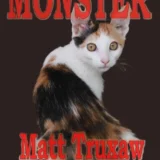

It's not uncommon for people to complain about steroetyping because it encourages people to have unrealistic ideas about how some group lives. That really is a problem. On the other hand, I think its worth remembering is that a lot of these stereotypes exist because there are people to fill them.
From a writer's standpoint, it's easy to abuse stereotyping because when you give a character they think they already know, that makes it easier for you to get them involved in the story. Stereotypes are an easy tool which all writers use at one time or another. Challenging a common stereotype is really a lot more trouble then using it is, and if you confuse the reader because they don't think the character you describe really exists, you just lost the reader.
The reason that there are people who fulfill these stereotypes is because these stereotypes are perpetuated such that people believe that is the proper way to be have within a given identity. It's a vicious cycle. And most of the stereotypes that exist came about because of some misunderstanding (like gay men are apparently all hella feminine and talk in a higher pitched voice because they only interact with women socially and want to be a female in a relationship with a man).
Not every author stereotypes, actually, and you don't have to stereotype a character in order to make them easy to understand. It is far less likely for you to meet someone in real life who has all the qualities of a stereotype than it is to meet someone who has a certain identity and is wholly their own person with their own interests. As someone who has cringed every time I told someone I am Italian, I can honestly tell you that nothing that's said about Italians (being in the Mafia, being excellent chefs, etc) is true about me – but I knew I would get those stereotypes. And within that, you make jokes – because we're all human – but I would never create Italian characters that "fit the stereotype" because it's honestly boring. They're too predictable, and I can't feel for a character that's just a cardboard cut-out.
Stereotyping is lazy writing which is seriously harmful to huge groups of people, and it really shouldn't be condoned. I see it being used in a satirical way, and that's something I can get behind. But painting such large groups of people with one standard brush is illogical, unfair, and poorly conceived.
Also, if breaking a stereotype is "too much trouble," then maybe an author who feels that way should either stop writing or only write about people they understand. If trying to make the most out of a character is "too much trouble," I honestly question why a person is writing at all, and what s/he wants to be giving to the world on the whole.
I'm talking about stereotypes general and you're talking about gay stereotypes. Another stereotype would be an athlete who hates studying and chasing girls. I don't believe that I've made it through a book that didn't use any stereotypes at all.
Just to be clear on something, I'm gay. You are making a whole series of assumptions, and quite frankly I don't agree with them.
I'm not effeminate, but I've known many gay men who were, and it's how they felt comfortable. I'm not certain that it is true that they are doing this because anyone expects it of them; I think it may just be how they are.
Make whatever assumptions you like beyond that. Stereotypes are absolutely involved in most writing. Some are more harmful then others, but almost every writer is going to bring up characters that seem familiar because they fit a stereotype in your mind.
I'm not talking about just gay stereotypes – which is why I mentioned my Italian heritage and the stereotypes that revolve around that in my last comment. And why James mentioned minstrelsy and the stereotypes surrounding race.
I'm not saying it's wrong that certain individuals have traits that are also stereotypical – that's part of being human and there are a lot of us and only so many traits to go 'round. And that may be the way they are naturally, or it may be something they've picked up from existing in our society – because you can't pretend that we never base our identity on what society tells us, we absolutely do. But my issue is that EVERY SINGLE PIECE of gay fiction in the context of this article stereotypes EVERY SINGLE GAY CHARACTER in the EXACT SAME WAY. It's not only a couple stories. It's 99% of them. And it's not doing anything to help people really understand or sympathize with these characters – it just waters them down to being sexual objects, and therefore paints the larger picture that living a homosexual lifestyle revolves completely around sexual pursuits. We may think we're all very smart, but we're affected by media more than we know. The stereotyping wouldn't bug me near as much if it wasn't also blatant objectification.
I also think there's an important distinction between a stereotype and an archetype, which doesn't get delineated as often as it should. A stereotype is almost always going to be an outsider projecting an opinion or trait onto someone else that is not based in fact, while an archetype or character type is a type of person (say, a gay individual) who fulfills a role while also having particular traits – but is not solely defined by their identity. I think that's the real problem – that we mix up one aspect of a person's (or character's) identity with their entire existence. And yes – some people who are gay situate their entire lives around their sexuality, or someone who is a jock centers their whole life around that one achievement. But people are more complicated than that. I don't think really talented writers rely on stereotyping because, again, it just rehashes old stories that we've all heard a thousand times before and aren't interested in anymore. Personally, I'm done with dumb blondes and meathead jocks and nerds with big glasses who have no social aptitude. I think a talented writer will take a type of person and expand on who they are, even if some of that character's traits seem stereotypical. That's really the difference between a familiar character and a stereotype – the "familiar" character fulfills the archetype role.
I'm not sure what kind of assumptions you believe I'm making; I'm only assuming that people have more depth and breadth than a stereotype allows us to think, and that people want to read material they can actually relate to on a human level without having to feel they need to fit into a specific niche. Nobody likes to be stereotyped in life, so why do we allow it to happen in fiction?
Also, it's important to point out that writers who effectively use stereotypes know how to manipulate them so that they aren't going to be harmful to the characterization or to what a reader takes away.
And I think I'm getting a little lost in the words we're using and how we're defining them. I chiefly think of "stereotype" as being a negative term, which is why this debate has become a little more heated than it necessarily has to be.
And I think, in terms of this post and talking about homosexuality in animanga, it is fair to say that stereotyping is absolutely having a negative impact.
No, you're totally right! A gay character who has motivations other than interior decorating and gettin' some nubile boy buns is completely unrealistic. Your average every day audience of all-American bigots would never believe in such a creature. It's asking people to accept a black kid from Brooklyn who doesn't do crimes!
EVERY TIME you use a character who is no more than a stereotype, it is weak writing. It is weak, and lazy, and will anger your audience. You don't need to coddle them with characters they've seen a hundred times before in Bones and Tambo's Flaming Minstrel Show. They've seen those characters a hundred times before and are bored. That's not to say your character can't have anything in common with the cardboard cutout of what society expects it to be, but a story full of those cardboard cutouts will just get soggy in the rain.
I think you're making an important distinction between a "characters who are gay" and a "gay characters." The latter, by definition, are stereotypes and defined by their sexuality.
For example, Willow Rosenberg in Buffy the Vampire Slayer discovers her homosexuality as she matures as an individual. She is a character who is gay and this becomes part of her story arc. By contrast, the character of Jack in "Will and Grace" is a gay character. His sexuality defines him and is constantly played for laughs.
Sometimes stereotyping is just the result of bad or weak writing. My two kids are currently enthralled with a simply dreadful tween comedy entitled "Good Luck Charlie" where the characters consist of a dorky father, smart-mouthed mother, dumb blond/cute daughter, brainy dork, etc. I don't know if they've got a gay character (probably not), but I guarantee that he'd be a flamboyant cliche.
In genre fiction, one of my favorite "characters who are gay" is the Falstaffian pirate captain in Fletcher Pratt's "Well of the Unicorn." He's huge, strong, a leader, a boon companion and just happens to like guys rather girls.
Certainly, that's a very important distinction. It makes me very uncomfortable when a character's sexuality is played for laughs (although Jack from "Will and Grace" is kind of hilarious, but I don't think that's because I'm aware of his sexuality…not sure, honestly), and again – it worries me that people are taking really harmful stereotypes out of such media and applying it to real life situations, putting every gay individual they meet into the "gay box" that defines what homosexuality is and should be. To be honest, there are a lot of the same stereotypes running around for heterosexual people, but they're more frequently challenged.
One of my favorite dichotomies is the distinction between the stereotype and the archetype, or character type. In the former, you're dealing with a harmful generalization that no thinking person is going to buy, and in the latter you have a character that fulfills a specific purpose while having their own personality and traits outside of their perceived identity.
And in closing…I gotta say, Buffy the Vampire Slayer is one of the few series that did a genuinely good job of portraying a homosexual relationship realistically. It was really quite refreshing.